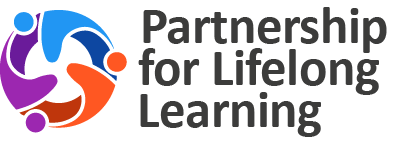
Partnership for Lifelong Learning
National Networks for Collaborative Outreach (NNCO)
 In January 2015, The Open University (OU) received additional funding from HEFCE to extend the work of the Social Partnerships Network (previous name for the Partnership for Lifelong Learning). The grant comes under HEFCE’s National Networks for Collaborative Outreach (NNCO) scheme and covers funding for 2014/15 and 2015/16.
In January 2015, The Open University (OU) received additional funding from HEFCE to extend the work of the Social Partnerships Network (previous name for the Partnership for Lifelong Learning). The grant comes under HEFCE’s National Networks for Collaborative Outreach (NNCO) scheme and covers funding for 2014/15 and 2015/16.
The new scheme, involving over 200 higher education institutions and reaching 4,300 secondary schools and colleges, aims to encourage more progression into higher education. Three of the networks, including the Social Partnerships Network, will offer advice and support to specific groups of students at a national level, thus supporting a diverse HE system which supports workplace and lifelong learning.
The aims of the project were to enhance the Social Partnerships Network through three specific strands of activity.
1. Development of a project website
The project has developed a website that clearly outlines non-traditional pathways to higher education. The website was called PEARL – Part-time Education for Adults Returning to Learn. The main focus served those who were 18 years and above looking for part-time and flexible learning opportunities.
The aim was to provide simplified advice and guidance, and signpost to sources of support and resources which helped to identify academic and vocational pathways (including informal to formal journeys) through post-compulsory to higher level learning.
The website helped users to plan their study journey and find relevant information which related to their own chosen career path. This website has since been decommissioned due to funding and resource.
2. Development of free online courses
The OU NNCO developed a suite of online courses, which are free and in the public domain.
The courses are aimed at people who are unemployed or in low-paid, unqualified jobs, particularly those looking to start a new career or improve their current career prospects. They contain a mixture of reading, activities and quizzes, drawn from existing and new open educational resources (OER).
Learners will receive a series of badges for each course which demonstrates successful completion of the quiz assessments. When a learner has completed all the quizzes associated with a particular course, they will be awarded with a statement of participation that they can print and present to employers.
The six courses are:
- Introducing practical healthcare: for healthcare assistants and wider health sector workers (bands 1-4 primarily).
- Supporting children’s development: for teaching assistants and other staff in schools.
- Planning a better future: for a wide section of workers, e.g. those in retail, hospitality and service industries who want support in planning their career.
- Caring for adults: for those in unpaid or paid caring roles within the adult social care sector, includes those people caring for family members.
- Starting your small business: for those who want to set up and sustain their own micro-small business.
- Taking part in the voluntary sector: for those interested in taking part or working in the voluntary sector.
3. Research and Evaluation
It was vital to the project and to inform future strategy that research and evaluation was embedded throughout.
The Project Team developed and implemented robust tracking and evaluation processes that helped us understand the impact of the free learning resources mentioned above and also capture insight gained from working collaboratively with a range of partners who are members of the Social Partnership Network.

Contact us
For more information about Partnership for Lifelong Learning please contact:
Zoe Worth
Senior Manager
Pro-Vice-Chancellor (Students)